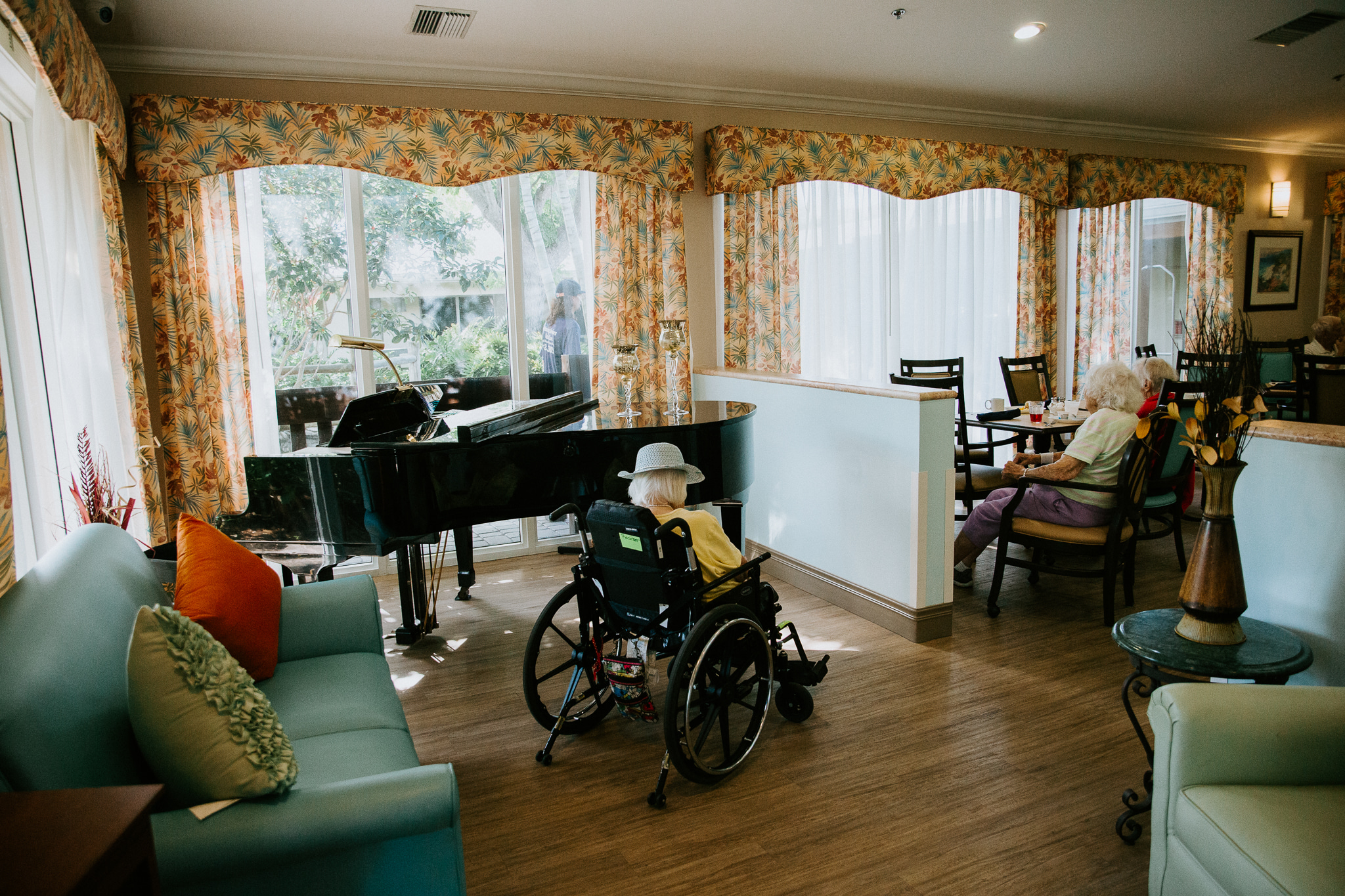When your loved one is living with dementia, there are a lot of things that may worry you. From fear about their cognitive decline to those of their physical safety, caregiving for the average family member can be nothing short of exhausting. Still, many people feel guilty about moving someone they love to a memory car center. These fears are unfounded, and caregivers should feel confident that a facility may provide their mom or dad with a better quality of life. Still, fears can remain about the security of these types of adult residences as they apply to those with dementia – so let’s take a look at memory care safety features and procedures.
- Those with dementia are typically senior citizens and may already be experiencing some problems with flexibility, agility, and balance. As falling is one of the leading causes of injury and death among senior citizens, ensuring they live in a safe environment is essential. A memory care center will typically be equipped with features such as railings, grab bars, and emergency call buttons – but you can also work with them to add any additional features necessary to ensure your loved one doesn’t trip or slip in their room.
- One of the most challenging aspects of being a caregiver is being on call 24 x 7. A memory care patient often needs help with all of their ADLs – that is, with personal hygiene, cooking, mobility, housekeeping, and more. This reality does not offer a caregiver any opportunity for a break or a rest, often resulting in frustration and burnout. An important aspect of memory care safety is the round-the-clock availability of a qualified staff that can take care of your loved one regardless of the level of need – and you can simply enjoy time spent visiting without guilt. After all, it is a huge relief when your loved one is getting the care they need.
- Memory care safety relies heavily on keeping the patient as engaged and active as possible. Whether through fitness classes geared for their ability or simply daily encouragement to get out of their room and take a walk, the staff at a memory care center are motivated to keep their charges as active and mobile as possible – and by extension, minimizing the opportunity and likelihood of taking a fall.
- The biggest concern regarding dementia patients often involves “sundowning” and wandering behaviors. Sunsetting refers to an Alzheimer’s patient’s likelihood to experience more intense confusion and disorientation towards evening – meaning that even if they appear alert during the day, they can fade quickly as the sun sets and they grow more fatigued. Dementia patients are also prone to wandering, which can be very dangerous for the individual if they make it outside and begin wandering while confused. This is one of the most tangible benefits that memory care facilities can provide. Residences are designed with the needs of the cognitively impaired in mind – hallways may be color-coded, signs are large and conspicuous, and doors to the outside world are locked to discourage any wandering or sunsetting behaviors. Most facilities also have cameras on much of the facility, allowing personnel to quickly located any resident who may have begun to wander. A family member can feel confident knowing that their loved one is being supervised and monitored and that their physical location and safety are secured.
At A Banyan Residence, we are dedicated to our residents’ health, safety, and well-being. If your loved one requires professional memory care in the Villages area, please call today for a consultation and tour.








